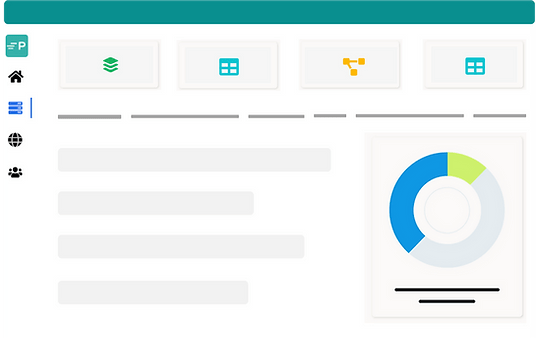Plenful, a startup developing workflow automation tools for healthcare providers, has emerged from stealth with $9 million in a funding round led by Bessemer Venture Partners.
Co-founder and CEO Joy Liu says that the proceeds will be put toward building out Plenful’s platform, growing the company’s 20-person team (particularly on the engineering, product development, sales and operations sides) and scaling Plenful’s customer base, which currently stands at around 20 healthcare companies.
“The pharmacy industry is facing technician burnout and workload overload, contributing to high turnover rates and high labor shortage in the industry,” Liu told TechCrunch in an email interview “Plenful helps save time on menial-tasks by automating administrative work to free up time and allow technicians and care teams to focus on top of license activities.”
Before Plenful, Liu was a health system specialty pharmacy operator with the-now-Walgreens-owned Shields Health Solutions, where she says that she experienced firsthand how manual and time-consuming many of the pharmacy workflows were — and how they bogged down her team.
It’s an industry-wide challenge.
According to a survey from health tech company Holon Solutions, 77% of healthcare workers are experiencing burnout, with the top reasons being not enough people to get the work done (including paperwork) and high demands from patients. Per the same poll, 34% of workers are spending more than a third of their time on administrative work while 72% said they’d be “very or extremely” interested in tech that cuts down on this work.
“I was privy to countless conversations with medical staff around burnout and lacking the time to focus on top-of-license tasks,” Liu said. “I could see that meeting the individual, nuanced needs of each health system required a solution that was flexible enough to sit on top of disparate data sources and highly configurable to the organization’s specific requirements.”
Plenful is designed to alleviate some of this burnout by sitting on top of a health system’s existing sources of data, monitoring for — and attempting to prevent — errors by automating manual data entry and data validation. Plenful ingests data in a range of formats, including PDFs and electronic medical records, applying algorithms to yield what Liu describes as “actionable insights” for clinical decision making.

Image Credits: Plenful
Plenful’s customers are using the platform to automate document data entry for onboarding and referring prescription orders, auditing and identifying potential areas of savings, Liu says, among other use cases.
“Plenful … allows pharmacy technicians to automate manual and administrative workflows so they can focus on the human processes, keeping pharmacies compliant while combating employee burnout,” Liu said. “There are few competitors offering a comparable level of healthcare-centric, no-code and highly configurable workflow automation solutions in the industry.”
Plenful competes with startups like Notable, which makes automation tools to speed up healthcare administration, and Infinitus, which recently raised $21.4 million for its tech that automates the repetitive, regular calls health providers have to place to insurers and other third parties.
But Liu asserts that Plenful is in a position of strength, in part because the platform was architected from the ground up to reduce the implementation and maintenance burden on IT and engineering teams.
“Plenful was founded during the pandemic, imbuing its services with a strong response to the urgent needs arising from COVID,” she said. “The confluence of the industry’s heightened interest in AI, increased healthcare spending and persistent labor shortages has significantly contributed to the company’s rapid growth. With multiple years of runway, Plenful remains focused on scaling through leveraging its proven use-cases and expanding its customer base.”
